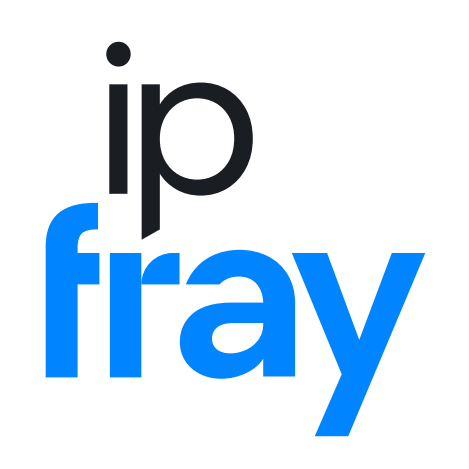Context: This is part of ip fray‘s coverage of Unified Patent Court (UPC) case law (see, e.g., June 19, 2024 ip fray article on a Court of Appeal (CoA) decision).
What’s new: An order by the UPC CoA in Mala Technologies v. Nokia (PDF) clarifies that arguments for a stay of the proceedings below will not be considered unless made in the written brief. If arguments are raised only at the interim conference, which deprives the non-movant of a fair chance to develop its opposition arguments, they are deemed out of time and will be stricken. The order furthermore reveals a request for a referral to the European Court of Justice (ECJ) in an interesting procedural situation where the patentee believes to be close to affirmance by the Bundesgerichtshof (Federal Court of Justice of Germany) of a nullity judgment by the Bundespatentgericht (Federal Patent Court of Germany) upholding the challenged patent.
Direct impact: Technically, the motion to stay proceedings failed, but as the order notes, there isn’t any serious harm to the applicant. All that is left to do in the UPC revocation proceeding is a final pleading by the non-moving party, and the same CoA order schedules the oral hearing on the actual preliminary objection for July 24, 2024.
Wider ramifications: So far, the UPC has rejected all requests for referrals to the ECJ, but should it happen in this particular case, it could have major implications.
Late on Friday, Judge-rapporteur Peter Blok single-handedly entered the order to deny a stay pending the CoA’s decision on the preliminary objection.
The order clarifies that an appellant seeking a stay must make its arguments for a stay in its written pleading so the non-movant has a fair chance to prepare its opposition. Here, patentee Mala made some arguments at the interim conference for the first time. Those arguments were stricken.
The request for a stay was then rejected based on the arguments the parties had made in their briefs. In this case, there’s simply no significant harm to Mala in Judge Blok’s opinion: they want to stay the revocation proceedings while the Bundesgerichtshof (Federal Court of Justice of Germany) is hearing an appeal of a nullity decision concerning the same patent (where Mala, in fact, already prevailed in the Bundesgerichtshof (Federal Patent Court of Germany)), but in the UPC revocation proceeding, all that will happen in the near term is that Nokia will file its final pleading, which does not have cost implications for Mala.
The UPC CoA, however, will already hold its oral hearing on the preliminary objection on July 24. That date was set in the same order that denied a stay. It’s possible that even though the motion to stay failed in a formal sense, it still has the effect that the UPC CoA tries to resolve the actual objection ASAP. A stay is one of the fallback requests relating to the actual objection, so theoretically it’s possible that a stay was rejected this time but will be granted next time. The difference is, however, that the stay Mala is seeking as a fallback would have a longer term: the proceedings in the UPC’s Paris Central Division (CD) would then be stayed until the Federal Court of Justice of Germany has ruled on Nokia’s nullity appeal.
In the present situation, the patentee apparently believes to be close to a final decision by the Federal Court of Justice of Germany affirming the Federal Patent Court of Germany and upholding the patent and doesn’t want the UPC to rule on a revocation claim anymore. The order reveals that the preliminary objection, which preferably seeks a dismissal for lack of jurisdiction, seeks a preliminary reference to the European Court of Justice (ECJ):
V. further, in the event that the Court of Appeal does not find that Art. 71a to 71c Brussel I Reg recast is applicable in the case at hand, request the Court of Justice of the European Union to give a ruling on the question of
- whether Art. 71c of the Regulation (EU) No 1215/2012 (recast) applies where proceedings are brought in the Unified Patent Court during the transitional period referred to in Article 83 of the UPC Agreement and parallel national proceedings have been brought in a court of a Member State party to the UPC Agreement prior to the beginning of such transitional period, and,
- not, whether Art. 72b (2) of the Regulation (EU) No 1215/2012 (recast) provides for a general application of Art. 29 et seqq. Brussel I Regulation recast where proceedings are brought in the Unified Patent Court during the transitional period referred to in Art. 83 of the UPC Agreement and parallel national proceedings have been brought in a court of a Member State party to the UPC Agreement before the start of such a transitional period;
Requests for a referral of questions of EU law by the UPC to the ECJ have failed so far, but maybe the CoA will deem this case a suitable vehicle for obtaining that kind of clarification.
Mala Technologies, an Israeli company, is represented by Taliens’s Dr. Thomas Lynker and Becker Kurig’s Dr. Thomas Kurig. Nokia is represented by Bird & Bird’s Boris Kreye and Dr. Lars Hessmann as well as Cohausz & Florack’s Dr. Christoph Walke and Lars Grannemann.
